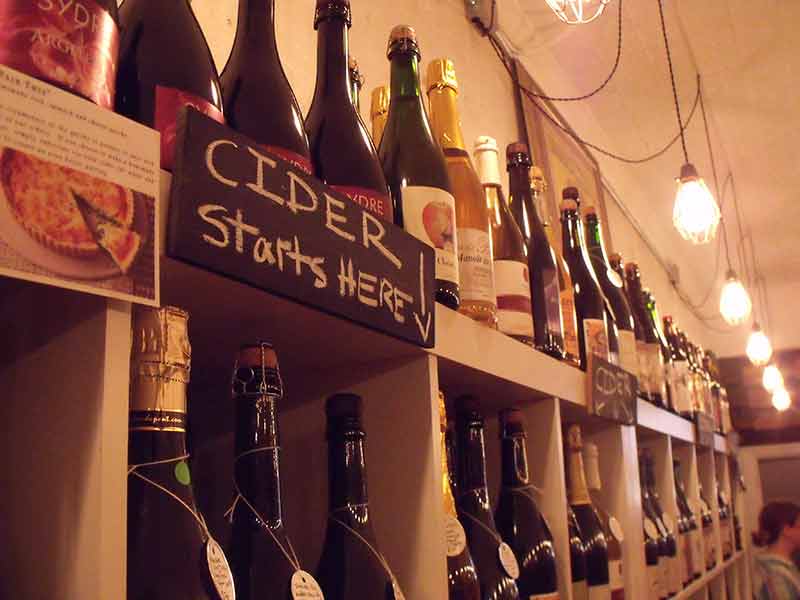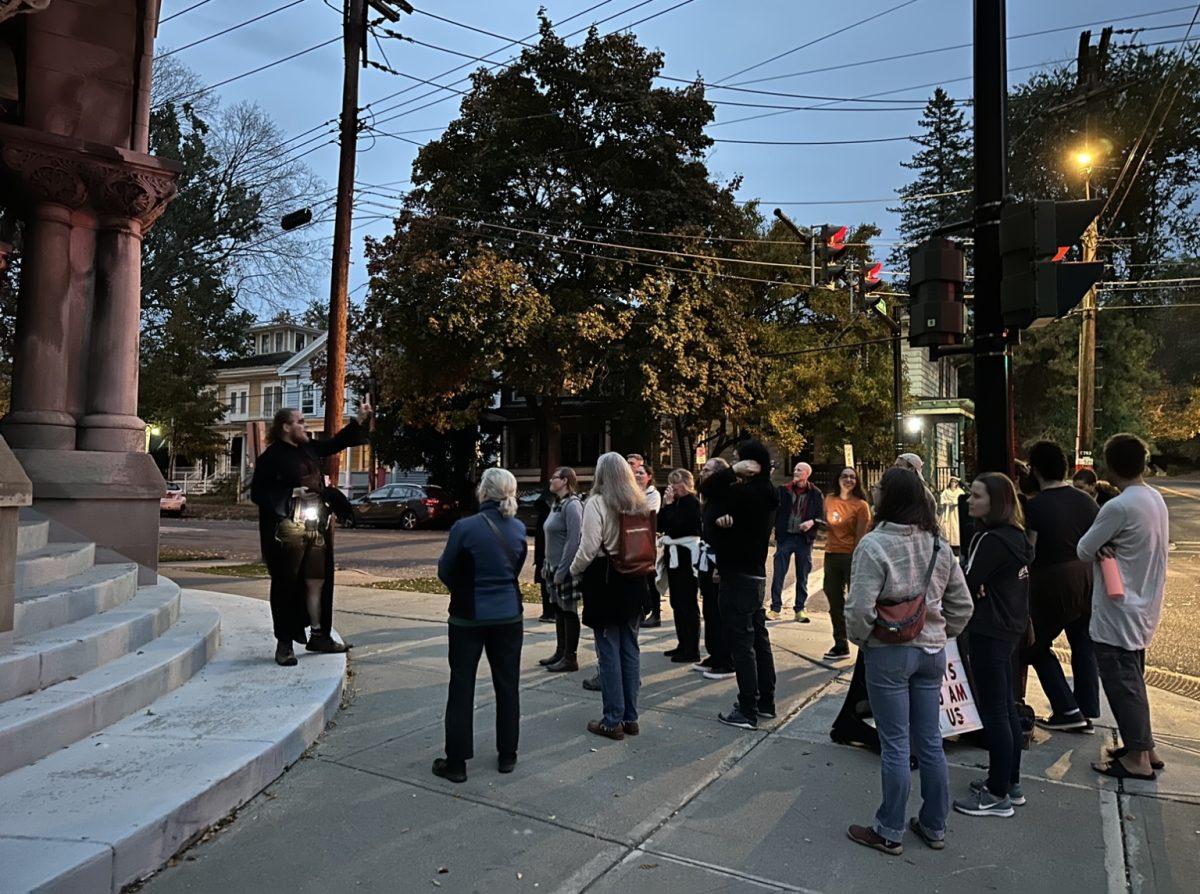A colonial staple, once more popular than beer or wine, cider is making a comeback. According to a 2014 study done by Washington State University’s Carol Miles and Virginia Tech’s Greg Peck, cider makers are ramping up production to meet demands.
Over the course of the two-year survey at Chicago’s annual CiderCon, run by the United States Association of Cidermakers, Miles and Peck found all but one cidery were planning on expanding. According to the survey, in 2013, a quarter of the 64 respondents had not yet started cider production. The researchers believe that this percentage represents cider producers that have either just started business or will sometime soon.
Chris Matthewson, a winemaker at Bellwether Hard Cider and Wine Cellars in Trumansburg said that the business has grown the most in the last five years. Cideries in the Finger Lakes often utilize Cornell’s expansive collection of apple varieties. Bellwether produces mainly American heirloom apple cider varieties from upstate New York—from dry Champagne-style ciders to ciders blended with cherry or black currant.
Cider blogger Meredith Collins, who also works for Bellwether, developed an interest in cider production after studying abroad in Norwich, England. When she returned, she realized that there weren’t as many hard cider varieties in the States, but recent expansion prompted her to create “Along Came a Cider,” where she reviews different ciders.
“[Now] we’re getting people who know what cider is,” Collins said. “They come through this front door because they specifically want it.”
Collins noted that the majority of customers first try commercial brands but then move toward local varieties. She said the cider trend is extending to wineries and breweries as well, as wineries can apply their fermentation techniques to fruit, and beer makers are starting to produce more six-pack ciders.
Friday marked the start of “Cider Week FLX,” with a tasting and meet-and-greet at Cellar d’Or with Bellwether, Eve’s Cidery in Van Etten, and Redbyrd Orchard Cider in Trumansburg. Mark Grimaldi, who owns the wine and cider shop, said many customers know little about cider. He said that in the past, customers would often confuse hard cider with super-sweet, non-alcoholic apple cider.
Cider makers and distributors agree that public interest in cider is here to stay, especially since it can cater to a variety of dishes and palates.
“I think a lot of millennials have gotten into hard cider — it offers the best benefits of popular drinks like draft beer and wine,” Matthewson said .







